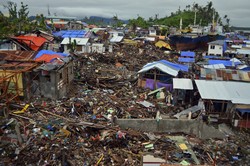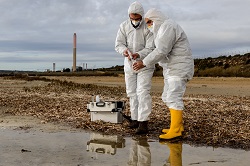The link between natural disasters and terrorism
The devastation that usually follows a natural disaster has many consequences for a community, not least of which are weaknesses that terrorist groups may choose to exploit. The EU-funded project NDTERROR (Can natural disasters incite terror?) investigated the connection between natural disasters and national security threats — an emerging and important issue in contemporary security policy. The goals in the first phase were to provide identification and empirical quantification of the effect of natural disasters on terrorism, explore the possible mechanisms at play, analyse the timing and geospatial correlates, and examine whether or not there are differing effects according to various disaster types. In the second project phase, the study focused on the causal effect, directionality and magnitude of the connection between terrorism and labour market outcomes. Researchers worked from detailed information on terrorism, natural disasters, and relevant demographic and economic variables of 165 countries covering the period 1970-2007. All project objectives were met, and the main findings were presented in five peer-reviewed articles published between 2011 and 2015. The topics of the publications cover: earthquakes, hurricanes and terrorism; the exploitation of chaos; predicting suicide attacks; causal influence of terrorism on fertility; and terrorism and the labour force. Project research found that disasters have a strong positive association with subsequent terrorist events and related fatalities. They mainly affected terrorism in countries with low to middle gross domestic product per capita. Another finding was that the effects of disasters spanned both transnational and domestic terrorism, with the first seen to increase in incidence immediately following a disaster. Data analysis revealed that terrorist attacks decrease fertility, measured by both total fertility rates and crude birth rates. Work focused on terrorism and labour markets showed that terrorist attacks decreased female labour force participation, leading to a greater labour gender gap. NDTERROR analysed the findings to assess implications for security policy with a view to implementing strategies that could mitigate terrorist actions. For example, measures aimed at reducing the impact of a disaster, by investing in prevention, resilience and international cooperation, could prevent substantial escalations in terrorism and thus afford important national security benefits.
Keywords
Natural disasters, terrorism, NDTERROR, national security, security policy






